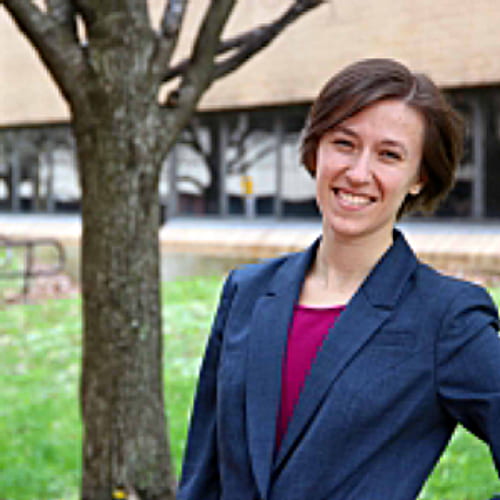 At the BIP Lab, our main goal is to understand parental decision-making. If information is power, we believe that learning about someone else’s personal experience can be particularly helpful when making decisions for your career, too. That’s why we wanted to introduce a new interview series, “Alumni Spotlight,” where we sit down with former students to learn what drives them, what they liked about working at the BIP lab, and where they are now.
At the BIP Lab, our main goal is to understand parental decision-making. If information is power, we believe that learning about someone else’s personal experience can be particularly helpful when making decisions for your career, too. That’s why we wanted to introduce a new interview series, “Alumni Spotlight,” where we sit down with former students to learn what drives them, what they liked about working at the BIP lab, and where they are now.
First up, we sat down with Abby Eskenazi, a former BIP Lab alumna, baking aficionado, and current Home Visiting Evaluation Coordinator at the Wisconsin Department of Children and Families.
BIP Lab: How did you become interested in your field?
Eskenazi: My mom is a Montessori teacher who worked with young children, so I grew up understanding quality early education. After I graduated from college, I worked as an English and math tutor with preschool children, many of whom were English-language learners. The students knew very little English and left at the end of the year reading at a kindergarten or first grade level. This made me realize how parent involvement made a huge difference in what learning took place after school. The job was only a year-long program, but the impact and importance of quality early intervention has stuck with me.
BIP Lab: What drew you to work at the BIP Lab?
Eskenazi: Before graduate school, I worked with a financial literacy program for Head Start families where part of my job was to be a liaison to the program evaluation team that was evaluating the effectiveness of the program on parents. I had very little experience with program evaluation and statistical analysis (the last stats class I had taken was in high school!), so I was curious about the impact of interventions on Head Start parents and their children. When applying to graduate school, I looked for research opportunities where I could learn more about these topics, and the BIP Lab immediately caught my attention. I was accepted to Harris, and reached out to the research team to learn more about a potential research assistant position.
BIP Lab: What is one of your favorite memories of the BIP Lab, and how does your experience reveal what the BIP Lab is all about?
Eskenazi: One of the coolest things I got to do was a cognitive interview, which is administered to participants to see how they’re interpreting the survey questions. I was trained by the research team and administered interviews with participants at a Head Start center. The families had one or multiple children in the room, who were often playing, talking, crying, or crawling around the room. This experience stands out to me for two reasons. First, it showed me how challenging it can be to design a survey that is interpreted similarly across many different participants (and in different languages!). Second, it was also an important reminder of how patience and flexibility are key when doing research that focuses on parents and young children.
BIP Lab: What are you doing now?
Eskenazi: I currently work as the Home Visiting Evaluation Coordinator at the Wisconsin Department of Children and Families. Home visiting is a program that involves trained professionals visiting prenatal or new parents in the home setting to work toward a family’s goals, focusing on topics such as child development, school readiness, and family well-being. My role involves partnering with our program evaluation team, data analysis, and continuous quality improvement.
BIP Lab: What professional accomplishment are you most proud of?
Eskenazi: As a recent alumna, I would say I am most proud of the early childhood policy learning opportunities I pursued during my time at Harris. In addition to working at the BIP Lab, I also served as the Senior Editor for Child and Family Policy at the Chicago Policy Review and later worked on early learning projects as a Mayoral Fellow at the City of Chicago, Office of the Mayor. These were all immensely helpful in preparing me to work in this field.
BIP Lab: What advice would you give to other students who aspire to follow a similar career path?
Eskenazi: If you are passionate about two-generation programs and early intervention work, do everything you can to learn more about it. Reach out to people in the field for informational interviews. Read the latest research and the research that has impacted policy in the past. Volunteer for conferences in the subject area. Also, take Professor Kalil’s Early Childhood: Human Capital Development and Public Policy class, it provides a great foundation in early childhood research.
BIP Lab: What do you enjoy doing with your free time?
Eskenazi: I enjoy taking long bike rides around Madison’s lakes with my partner, engaging in long and involved baking projects, and practicing yoga.
